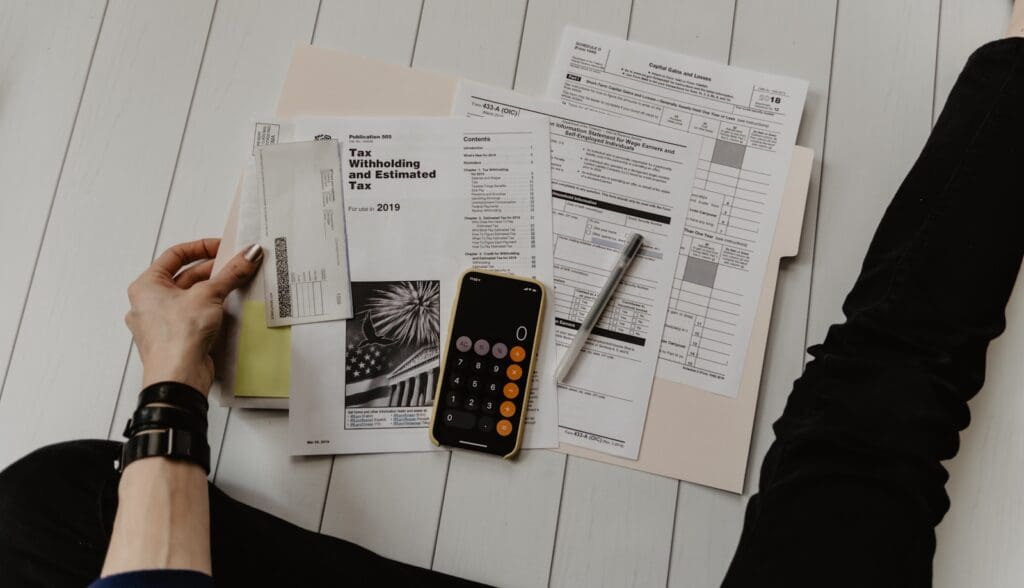Many people dream of being able to retire early. With planning, saving, and a good strategy, it’s entirely possible to retire well before you’re eligible for Social Security. Here are 20 tips for successful early retirement.
20. Consider Why You’re Retiring Early and What You’ll Do

People often retire early to have more time. Less time working and more time doing something else. It might be other work, too, such as a new full or part-time business venture. It can also be pursuing an interest. Sometimes it’s physical limitations. Know what you want to do after retiring, what it will take, and what it will cost.
19. Identify Everywhere Your Money Is Currently Going

The major monthly expenses are easy to identify and track. Mortgage/rent, utilities, etc. However, nonrecurring or smaller expenses can be harder to track and overlook. Some may be recurring but less noticeable. Before planning your retirement, you need to become aware of where every penny of your money goes. This will help you identify what you can reduce or eliminate.
18. Figure Out the Savings You’ll Need

Your age at retirement determines the amount of savings you’ll need. You’ll need to plan for inflation. The traditional rule was 2% per year, but that number may need to be adjusted amid high inflation. Anticipate higher medical expenses as you age. If drawing from a retirement fund, stick to the rule of drawing “4 percent” of your total during your first year of retirement.
17. Automate Your Savings

One method of ensuring your savings account grows is setting up automatic payments. That way, you don’t have to think about it. The amount you’ve determined must be put away each month automatically goes into the account. This method forces you to work with what you have left and make it stretch. It also forces you to reconsider nonessential purchases.
16. Shift Debt or Bill Payments to Savings

Before you retire, another method for increasing your retirement savings is to move the money that previously went to an expense you no longer have. For example, a car or credit card payment. Since an expense was already in your budget, take that money and put it in savings each month. Over time, your savings will balloon.
15. Eliminate Debt

Debt siphons your cash flow in retirement. It’s crucial to eliminate as much debt as possible or all of it before retirement. Payoff debt with the highest interest rate first, such as credit cards. Consolidate debt to a single low-interest payment if possible. A home equity loan or line of credit is one method of consolidating debt.
14. Start Reducing Expenses Now

Reducing expenses before you plan to retire early does three things. First, it reduces expenses before you retire and, thus, the amount of money you’ll require to live on. Second, it allows you to put more money away in savings. Third, it allows you to experience living on less money.
13. Adopt a Mindset Toward Spending Less

Even if you don’t have a frugal nature, you can learn to be thrifty. It’s important to develop a mindset toward spending less in every area of your life before retirement. Avoid spending money on or acquiring anything that isn’t essential. Learn to live with less. Every dollar not spent is a dollar saved.
12. Downsize: Live Smaller or Tiny

Less is more when it comes to early retirement. Less house means fewer expenses from energy costs to upkeep to insurance to property taxes. Selling your large home can position you with money left over to kickstart your early retirement. Many earlier retirees choose mobile homes or embrace the tiny home or RV trend.
11. Retire Abroad

Many people retire early by relocating outside the United States where the US dollar has a higher value and expenses are less. In some countries, the difference is so significant that many people can retire on their Social Security income alone with money left over. Do your research, consider what you’ll need, and learn the language of your destination country.
10. Develop Passive Income Streams

Passive income is money you receive without having to physically work hourly for it. You can acquire passive income in numerous ways including property rentals, renting a room, renting your belongings, investments, a reverse mortgage, selling items you create, book or music royalties, creating an informational website, podcasts, or blog, and more.
9. Moonlight Part-Time

Moonlighting to make extra income allows you to choose a schedule that you’re comfortable with. Earn money through part-time work whether at a physical location or remotely. This would fall into the category of semi-retirement, as you are retiring from full-time work. If you’re receiving Social Security before your full retirement age, be aware of yearly income limitations.
8. Budget for Activities and Leisure

You don’t want an early retirement plan that is so bare-bones it leaves you stuck at home and scraping by. Some studies have shown an early retirement predicts a shorter lifespan. The research suggested that these early retirees weren’t staying active and engaged, which is a must for remaining mentally, emotionally, and physically healthy.
7. Understand the Rules for Withdrawing Retirement Savings Early

Traditional IRAs and 401(k)s have a 10% penalty for withdrawals made before age 59.5. If you are retiring before this age, you’re going to take a hit if you tap into these funds. Traditional 401(k)s and some IRAs provide tax-free contributions and are taxed when you withdraw. These are best accessed once you stop working and your income is lower.
6. Understand Mandatory Retirement Savings Withdrawals

Required Minimum Distributions (RMDs) are minimum amounts the government mandates that you must withdraw from your retirement savings each year. RMDs are applied to 401(k), IRA, 403(b), and 457(b) accounts, by the IRS. For those born in 1949 or earlier or in 1959, the RMD age is 73. For those born in 1960 or later the RMD age is 75.
5. Plan for Healthcare Costs, Especially Insurance Before You Qualify for Medicare

One of the biggest drawbacks to retiring early is not being eligible for Medicare until age 65. If you stop working, how will you pay for your healthcare? Make sure to plan for funding your insurance in early retirement. Depending on your income, you could qualify for low- or no-cost insurance through the Affordable Care Act but expect high deductibles.
4. Early Retirement Doesn’t Mean Taking Social Security Early

Optimally, it’s best to retire without needing to take Social Security early before your full retirement age (FRA). Taking it at 62 instead of the FRA of 67 results in a 30% benefit reduction. At the very least, plan to have enough money to make up the difference until you can start receiving your Social Security at your FRA.
3. Make Sure to Consider Taxes

Taxes can have a significant impact on your retirement funds. Estimate what tax bracket you’re likely to fall into. The state you live in matters. Some have extraordinarily high state taxes, while others have no tax. Further, Some IRAs are taxed when money is withdrawn. Lastly, if you work part-time after retirement, it could increase your tax burden.
Read More: 20 Grocery Store Rip-Offs You Should Never Buy
2. Learn How to Turn Savings into Income

Leaving your money in a low-interest-bearing savings account means you’re losing money. Your savings should be invested with interest earnings, at the very least, that keep up with inflation — or better, actually earn you money. There are fairly safe investments such as government treasuries, bonds, and CDs. Stocks are riskier. Educate yourself and engage a knowledgeable, trustworthy retirement planner if necessary.
Read More: How Do IRS Tax Relief Programs Work?
1. Take Advantage of Catch-Up Retirement Savings

Tax-advantage retirement accounts such as 401(k)s and IRAs have limits on how much you’re allowed to save each tax year. However, the government allows those aged 50 and above to make additional “catch-up” contributions that are above the annual contribution limit. Therefore, plan on tucking away extra money once you reach age 50.
Read More: Simple Advice: How to Deal With Tax Debt








